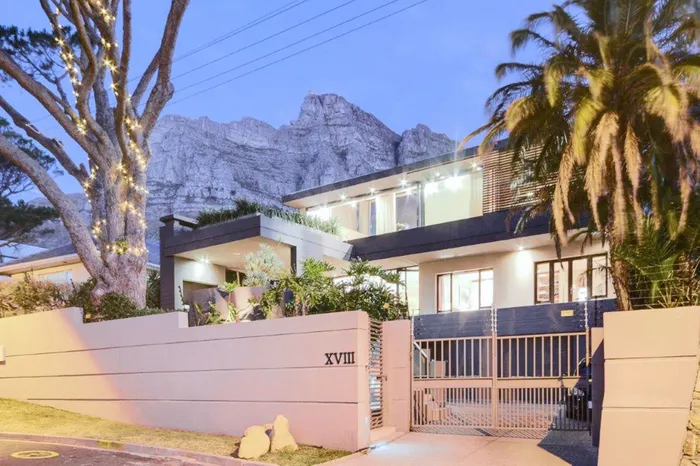South Africa's luxury property market thrives: a look at the booming real estate scene

A home that was marketed in the Atlantic Seaboard suburb of Camps Bay for R15 million.
Image: Supplied
The luxury property market in South Africa is thriving, with discerning buyers competing for homes in the country’s most exclusive suburbs.
According to BetterBond, home loans for properties above R3 million have grown by 6.6% this year, reinforcing the strength of demand for premium real estate.
“Five interest rate cuts in recent months have stimulated buyer activity for relatively higher-priced homes around the country, and particularly in the country’s metropolitan areas,” says Bradd Bendall, BetterBond’s national head of sales.
“As a result, according to BetterBond’s September Property Brief, home loans of more than R3 million make up 10% of all bonds granted in the past 12 months, and the share of bonds for homes of R2 million to R3 million accounted for 7% of all loans.”
Combined, bonds for homes of more than R2 million make up 22% of all home loans granted by BetterBond in the 12 months to August this year.
What is encouraging is that homebuying activity for properties between R1 million and R1.5 million has strengthened, accounting for 20% of the share of loans granted, notes Bendall. “If interest rates drop again towards the end of this year or early next year, we could see even more activity for higher-priced homes.”
The latest Africa Wealth Report 2025 by Henley & Partners and New World Wealth names South Africa as the wealthiest on the continent, with Cape Town and Johannesburg ranking as two of the wealthiest cities.
According to the report, 41 100 millionaires call South Africa home. The five suburbs with the most expensive properties, with an average of upwards of R20 million, are all in Cape Town.
Suburbs such as Camps Bay, Clifton, Constantia, Bantry Bay and the Waterfront are the most expensive. These suburbs saw over 120 properties sold above R20 million last year, totalling more than R3.6 billion in sales value. Some sales reached over R50 million.
As Lightstone reports, the Western Cape accounted for around 40% of transactions above R10 million in 2024, underscoring concentrated activity at the top end of the market.
Although the destination of choice for 12% of the country’s population, the Western Cape accounts for 18% of the volume of property transactions and almost 31% of the value. One of the reasons for the popularity of the province is that it boasts better governance and economic growth.
The province comes out top in the 2024 Governance Performance Index (GPI) by Good Governance Africa (GGA), which assesses local municipalities and aggregates results by province. A home in Nettleton Road, Clifton, sold this year for a record-breaking R157 million.
The luxury market in Gauteng is also performing well, with a strong demand for high-end properties in suburbs such as Sandton, Hyde Park and Bryanston. “These suburbs have plenty to offer, with secure properties close to popular restaurants and recreational activities, reputable schools and economic opportunities,” says Bendall.
Foreign buyers are also seeing value in snapping up prime property along the Atlantic Seaboard or the Winelands. Lightstone reported earlier this year that overseas buyers pay on average R2.7 million for property in South Africa.
This is well above the current average purchase price of R1.6 million as reported in BetterBond’s September Property Brief. Lightstone also confirmed the Western Cape as the preferred destination for foreign buyers in most price bands.
They accounted for just over 40% of all property transactions above R10 million, 25% of transactions between R5 million and R10 million, and around 15% of all transactions in the R3 million to R5 million price range.
“With a favourable exchange rate and the appeal of a comfortable climate and scenic attractions, the Western Cape remains a perennial favourite with foreign buyers,” says Bendall.
“South Africa’s luxury property market continues to demonstrate remarkable resilience, fuelled by strong local demand, international interest, and the enduring appeal of exclusive suburbs in both Cape Town and Johannesburg,” Bendall says.
Meanwhile, despite the recent pause (September 2025) in the local interest rate cycle, South Africa’s housing market recovery remains firmly on track, continuing to build momentum amid sustained positive sentiment, says Dr Andrew Golding, chief executive of the Pam Golding Property group
National house price inflation is also gaining ground, rising to +4.2% in August 2025, according to the revised Pam Golding Residential Property Index.
Encouragingly for investors and existing homeowners, subdued consumer price pressures supported real (inflation-adjusted) house price growth of +0.9% in August, marking six consecutive months of positive gains.
By price segment, the upper band above R3 million posted the strongest growth at +5.5% in August, followed closely by the R2 million to R3 million band at +5.4%, while homes priced below R1 million rose by +3.3% over the same period.
A broad-based recovery is also said to be evident across South Africa’s major metro markets, with Cape Town leading the pace and Tshwane spearheading the rebound in Gauteng.
The coastal price premium continues to widen, while freehold properties are registering a slightly stronger recovery in prices than sectional title units.
Market activity remains sustained across regions and price bands, including the luxury segment, highlighting renewed buyer confidence. In-demand locations, particularly those offering strong lifestyle appeal, continue to attract buoyant activity, underpinned by semigration trends and access to competitively priced finance.
This resilience is all the more notable against the backdrop of a subdued economy.
Independent Media Property
Related Topics: